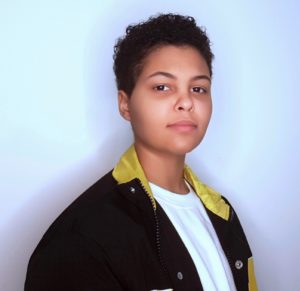BSc Geology student and Birkbeck Trans Students’ Officer Jayden Solitro describes the experience of coming out as transgender at school age and settling into university life at Birkbeck.
I came out as transgender at 15-years-old on the day of my last GCSE exam. I stayed at the same school in sixth form, and when I came out to my teachers, they decided to have a “transition period” – no pun intended – in which they would call me a short-hand version of my name for a while, because they thought other students would be confused by the sudden change of my name.
To this day, I’m still speechless at the fact that my teachers were more concerned about the effect my gender identity would have had on other students.
As a transgender person, I have always felt disconnected to my gender identity due to society not acknowledging it or respecting it. Every day I feared being misgendered or being called my former name (deadnamed). After I spent two years in a small town in Surrey trying to make stubborn teenagers use the right name and pronouns, I was terrified to go to university, because I thought I would have to start my journey all over again. Luckily, I was wrong; as soon as I came to Birkbeck, I noticed that I was surrounded by respectful adults, and my journey couldn’t have been easier.
When I joined the Students’ Union in 2019 as the Trans Students’ Officer, the Supporting Transgender, Intersex and Gender Non-Binary Students policy was enforced, thanks to the collaboration of College and Union staff.
As soon as I changed my name on the Birkbeck online portal, my decision was immediately respected by all members of staff, which was such a refreshing experience after having to wait for weeks in hope that my teachers would stop deadnaming me in school.
As a fellow student, and not just the Trans Students’ Officer, I am passionate to make sure that transgender students feel safe at Birkbeck, and I would like to encourage you to read this new policy, as it is important for us to know our rights and that they are a way to make our experience as a student the best it can be.
Thanks to this policy, chances to be “deadnamed” on campus will be lowered, as students are now able to change their preferred name on My Birkbeck and receive a new student ID free of charge. As a Deed Poll is not required to do this, this is also accessible to international or EU students who can’t apply for a deed poll in the UK, like myself.
Further Information


